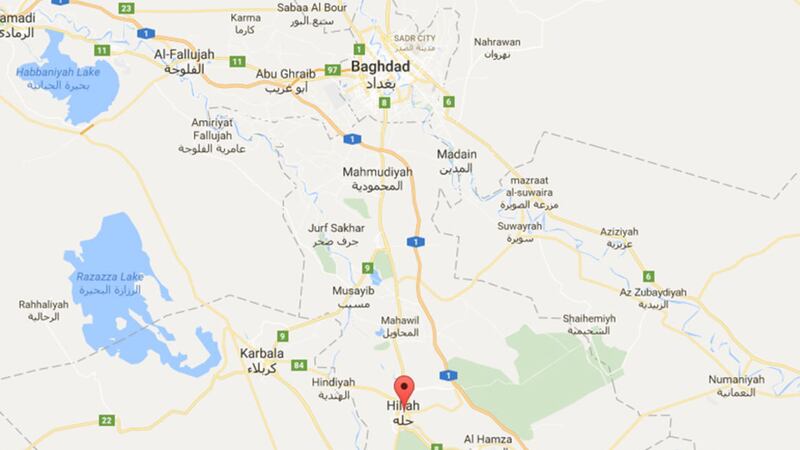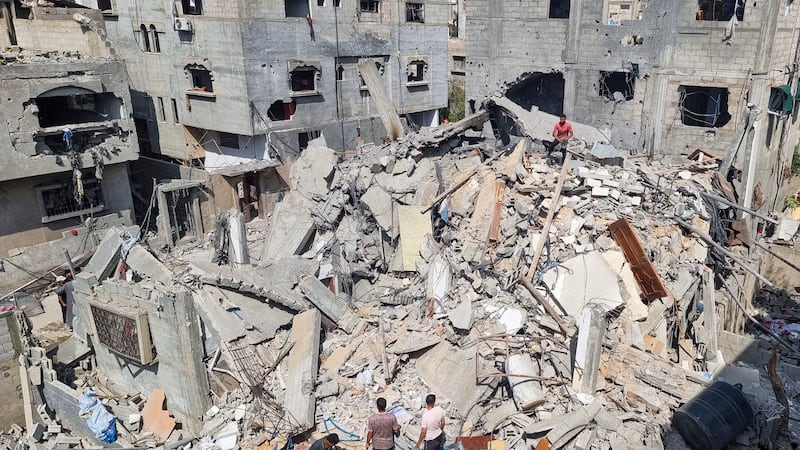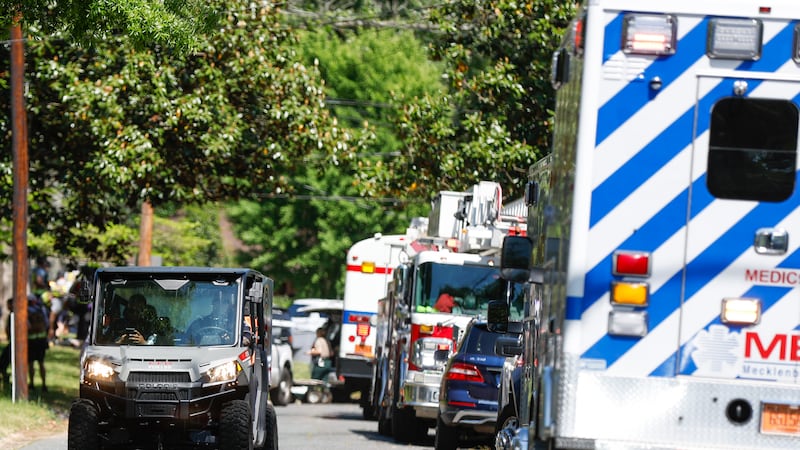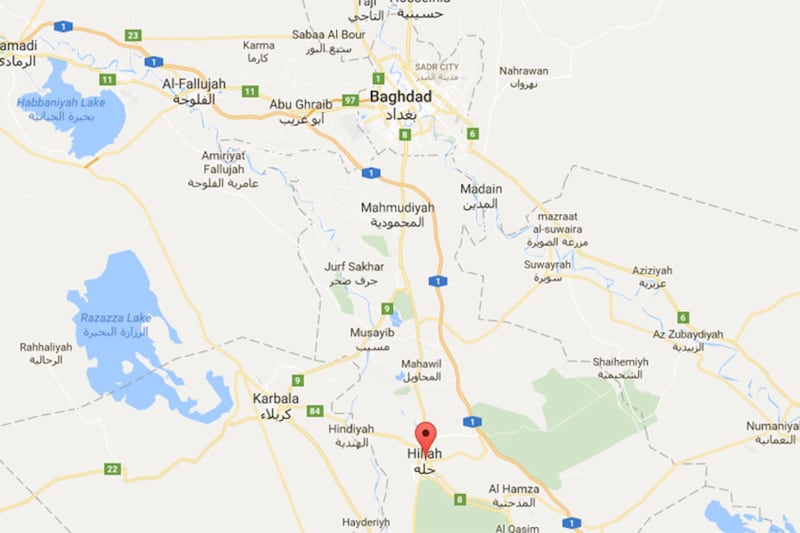The death toll from a bombing in Iraq claimed by Islamic State has risen to 73, including about 40 Iranian pilgrims, according to hospital and police officials.
The officials said 65 others were wounded in the deadliest IS attack in four months, at a fuel station on a major highway near the city of Hilla, about 60 miles south of the capital Baghdad.
IS claimed the attack in a brief statement on its Aamaq media arm, saying it was a suicide truck bomb.
The attack appears to have targeted a bus-load of Iranian pilgrims heading home after a major Shiite religious observance in the holy city of Karbala.
Iran's deputy foreign minister Hassan Qashqavi was quoted by the semi-official Tasnim news agency as saying that 40 Iranians were killed.
The attack was the deadliest by IS since a massive car bomb killed around 300 people in Baghdad in July.
The new assault came a day after a dozen small-scale bombings in and around the capital killed 31 people and wounded more than 100 - a particularly bloody day even by the standards of Baghdad, which has for more than a decade endured near-daily violence blamed on IS or its forerunner, al Qaida in Iraq, and which mostly targeted members of Iraq's Shiite majority.
The fuel station bombing underlined the continuing ability of IS to stage high-profile terror attacks even as a massive Iraqi military operation is under way to dislodge its fighters from its last major urban stronghold in Iraq, the northern city of Mosul.
The offensive is being aided by volunteer militiamen and the US-led coalition, which has mostly been pounding IS targets in Mosul with air strikes.
The latest IS bombing took place in Iraq's Shiite hinterland south of Baghdad, a region that has largely been spared the near-daily violence that has for years engulfed the capital and Sunni regions.
Earlier this week, prime minister Haider al-Abadi visited Karbala, where he praised the country's security forces for protecting the pilgrims against attacks by IS.
Extremist Sunni militants, including IS, view Shiites as heretics and routinely target Iranian pilgrims who visit Iraq by the hundreds of thousands to pay homage to major Shiite shrines in Baghdad, and also the Shiite holy cities of Karbala and Najaf, south of Baghdad, and Samarra, to the north.
Shiite Iran is a major backer of the governments in Iraq and neighbouring Syria in their fight against IS, providing military advisers and weapons.
"Let the vile Rafidha (Shiites) know that what awaits them in the near future, God willing, will be more painful and bitter and that the flames of the battles in Nineveh will reach them in Baghdad, Karbala and Najaf," IS said in its statement.
Nineveh is the northern Iraqi province where Mosul is the capital.
The Shiite observance in Karbala, called the al-Arbaeen, in which the Iranian victims participated, was the 40th day after the anniversary of the death of a much-revered 7th century religious figure, Imam Hussein, grandson of the Prophet Mohammed.
The ceremonies routinely attract hundreds of thousands of pilgrims, including many Iranians who travel overland into Iraq for the occasion.
Several members of Iranian civil defence staff who had been in Karbala to offer assistance to Iranian pilgrims rushed to the scene after the bombing, helping their Iraqi counterparts collect the bodies of the victims and aiding the wounded.
The Iraqi government's campaign to retake Mosul began last month, but stiff IS resistance and concerns over the safety of civilians who remain inside the city have slowed progress.
Fighting continues in the eastern sector of Mosul, with Iraqi special forces seizing another neighbourhood, Masaref, and advancing in the densely populated Zohour district, according to military chiefs.



